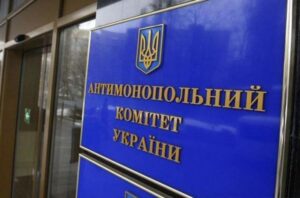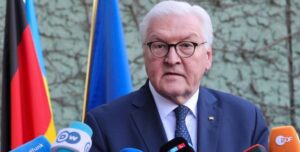
The Commission for Emergency Situations of Moldova has banned cryptocurrency mining in the country, as well as the import of equipment for it.
According to the decision of the Commission on Emergency Situations, this is one of the measures taken in connection with the energy crisis.
Among other measures – the requirement for the owners of the premises to use heating devices so that the temperature in the room during working hours does not exceed 19 degrees, and outside of working hours – 15 degrees. Also, the owners of the premises will have to abandon advertising, decorative and architectural lighting, as well as turn off the fountains.
In addition, indoor escalators must be suspended from 7 am to 11 am and from 6 pm to 11 pm.
At the end of October, Moldova faced an energy crisis after Ukraine stopped exporting 30% of the electricity needed by the country, and the Moldavskaya GRES cannot supply the contracted 70% due to the reduction in gas supplies to Moldova from Gazprom. So far, urgently during the period of shortage, Moldova buys electricity from Romania.

Ранее “Судебно-юридическая газета” публиковала эксклюзивное обращение Инициативной группы судей относительно судьи Ильичевского районного суда Мариуполя, которая 7 месяцев находилась в плену
26 сентября “Судебно-юридическая газета” публиковала эксклюзивное обращение Инициативной группы судей относительно судьи Ильичевского районного суда Мариуполя, которая 7 месяцев находилась в плену.
Наконец, судья Ильичевского районного суда Мариуполя Юлия Матвеева 17 октября 2022 освобождена из плена.
Освобождение из плена произошло во время соответствующего обмена, когда Украине удалось вернуть 108 женщин.
Напомним, что Юлия Матвеева, вместе с мужем, была задержана представителями так называемой «ДНР» во время попытки выехать из Мариуполя 19 марта. Мать судьи и несовершеннолетнюю 13-летнюю дочь супругов боевики просто оставили на дороге без вещей и средств к существованию.
Информацию об освобождении судьи “Судебно-юридической газете” подтвердил также председатель Рады судей Украины Богдан Монич.

Preparations for the possibility of the practical implementation of the additional capitalization of Alfa-Bank Ukraine by $1 billion by existing shareholders continue, in particular, Mikhail Fridman sent a letter to the regulatory authorities of the Principality of Monaco with a request to authorize a partial unfreezing of funds on his accounts in Monaco for this purpose.
Commenting on the latest information on possible capitalization, Roman Shpek, head of the bank’s supervisory board, told Interfax-Ukraine on Thursday that he himself is currently holding meetings in Brussels to discuss the development of a mechanism for unfreezing, additional capitalization and a system for monitoring the targeted use of funds.
“I believe that the bank will be able to implement the additional capitalization project, and this will be an important mechanism and a precedent for voluntary financing of the restoration of Ukraine,” Shpek said, pointing out that this is a difficult job, but it is being done.
Alfa-Bank Ukraine, according to the NBU, as of September 1, 2022, ranked 7th (UAH 111.16 billion) in terms of total assets among 67 banks operating in the country.
In early June, Bulgarian ex-Minister of Finance Simeon Dyankov, who is a trustee of the National Bank for Fridman’s stakes and other sanctioned shareholders, announced that he was working to obtain regulators’ permission to capitalize the bank using $1 billion in subordinated debt from shareholders’ funds blocked by sanctions. .
At the same time, on October 6, the Verkhovna Rada adopted the law “On the specifics of withdrawing from the market a systemically important bank under martial law,” which implies nationalization without additional capitalization by the state. The document also establishes that the reimbursement of the value of shares to shareholders will be possible only after compensation for damage to the state of Ukraine from the Russian Federation and exclusively at the expense of such funds. According to the definition of the NBU, there are now 14 systemically important banks in the country, however, both deputies and experts point out that we are talking about Alfa-Bank Ukraine.

The Northern Interregional Territorial Branch of the Antimonopoly Committee of Ukraine (AMCU) fined Forma LLC and IBK Ukrbud LLC for bid rigging for the purchase of design works for the construction of the Podolsk bridge in Kyiv.
According to the press service of the Antimonopoly Committee of Ukraine, it was found that the companies coordinated their actions: they used common IP addresses for managing accounts and for tax reporting, acted simultaneously when receiving bank guarantees, etc.
Based on this, the Antimonopoly Committee of Ukraine recognized two companies as violators of the legislation on the protection of economic competition and imposed fines. In addition, violators are banned from participation in the auction for a period of three years.
According to Opendatabot, the owner of IBK Ukrbud LLC is Maksim Fomichov. The owner of Kyiv-based Forma LLC is Oleksandr Stepenko.
Both companies participated in the tender of the KP “Directorate for the Construction of Road Transport Facilities of Kyiv” in the “Prozorro” system for the purchase of design work for the construction of the Podolsk bridge in 2018. The winner of the auction was “IBK “Ukrbud” with an offer of UAH 11 million.

Leleka multidisciplinary medical center has extended the international accreditation of Joint Commission International (JCI) for 2023.
The medical center told Interfax-Ukraine that Leleka is the first and only clinic in Ukraine accredited by JCI. The basis for the extension was the current agreement between the company and the Joint Commission International, which deals with the accreditation of medical clinics.
“The Joint Commission International has extended the validity of the Leleka medical center certificate, which confirms the center’s compliance with international qualification standards for providing medical care to patients and organizational management in healthcare,” the medical center reported.
The medical center said that the clinic minimizes risks in both medical and non-medical processes, and also controls the use of modern treatment protocols.
As reported, in 2019 Leleka medical center was the first in Ukraine to receive JCI accreditation, one of the most prestigious global quality standards for medical institutions. The standard is based on the U.S. system of medical accreditation of medical institutions, based on the management of patient outcomes.
The international branch of JCI accredits hospitals in Asia, Europe, the Middle East, Africa and South America, and now in Ukraine. JCI updates its accreditation standards annually, expanding on patient safety goals.
The Leleka multifunctional medical center is one of the leading Ukrainian clinics in the field of obstetrics, gynecology, and general surgery. The medical center practices medical protocols approved in Ukraine, the United States and Western Europe.
The clinic provides medical care to patients from 32 countries. The Leleka Center for Modern Surgery works in the field of operative and gynecology, mammology, vascular surgery (phlebology), proctological and urological operations, endocrine surgery, plastic, abdominal, bariatric, outpatient surgery and endoscopy.

German Federal President Frank-Walter Steinmeier has canceled a planned visit to Ukraine on Thursday, 20 October, the German daily Bild has reported.
According to the publication, the visit, which had been agreed upon for weeks, was canceled for “security reasons”.
“While the federal president is canceling his visit, there are many foreign diplomats and guests wishing to show their presence in the capital right now,” a Ukrainian government representative told Bild.
Additionally, the publication learned that the German Foreign Office, Interior Ministry, and security agencies recommended Steinmeier cancel his trip to Ukraine. At the same time, a new date for the visit is expected to be set in the near future.